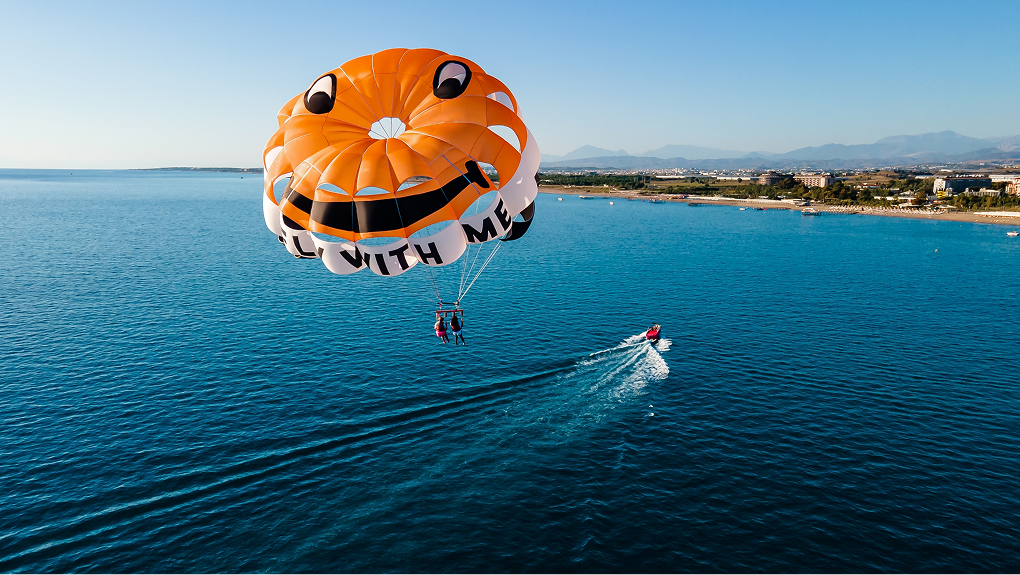“I’d recommend them to anyone working offshore. They fought hard and got me a settlement that helped cover my medical bills and lost wages.”

Parasailing can be an incredible experience, offering breathtaking views of the Gulf Coast and a sense of exhilaration like no other. But when something goes wrong, what starts as an exciting adventure can turn into a nightmare. Equipment malfunctions, improper training, and negligence from operators can lead to catastrophic injuries or even tragic loss of life.
If you or someone you love has been injured in a parasailing accident, you know how overwhelming the aftermath can be. Medical bills pile up, recovery feels uncertain, and determining who is responsible can feel like an impossible task. That’s where skilled legal representation comes in. At our firm, we are here to help you hold negligent parties accountable and secure the compensation you deserve.
Don’t face this difficult time alone. With the right legal guidance, you can begin to rebuild your life, hold operators accountable for unsafe practices, and secure the financial support you need to move forward.
Parasailing is often depicted as a thrilling and carefree activity, offering participants an unforgettable experience high above stunning waters. However, beneath the surface of this seemingly idyllic adventure lies a series of risks, many of which are underestimated by participants and even operators. Understanding these risks and the injuries they can cause is essential for both reducing the occurrence of accidents and ensuring accountability when they do happen.
Parasailing may appear straightforward—an individual is strapped into a harness, attached to a parachute-like canopy, and towed behind a motorboat. However, this activity comes with significant risks due to a lack of regulations, unpredictable conditions, and improper safety measures.
When parasailing accidents occur, they often result in severe injuries due to the height, speed, and forces involved. Common injuries include head and spinal injuries, broken bones, internal trauma, and even drowning.
The most troubling aspect of parasailing accidents is how preventable they often are. Many injuries and fatalities result from avoidable negligence, such as poorly maintained equipment, inadequate training, or ignoring weather advisories.
Every individual who decides to parasail should have the assurance of safety. When those responsible for maintaining that safety fail to do so, it’s essential to hold them accountable.
Determining liability in a parasailing accident can be complex, as multiple parties may share responsibility. Commonly liable parties include parasailing operators, equipment manufacturers, and boat owners or captains. Possible liable parties include:
Skilled legal representation is crucial to identify all responsible parties and hold them accountable.
Our experienced lawyers provide the support and guidance you need, including investigating your case, identifying liable parties, negotiating with insurers, and representing you in court. We’re committed to securing maximum compensation for medical expenses, lost wages, pain and suffering, and more.
When you choose us, you’re not just hiring a lawyer—you’re gaining a partner dedicated to helping you reclaim your life.
Being involved in a parasailing accident often leads to various financial, physical, and emotional hardships. Victims may receive compensation for medical expenses, lost wages, pain and suffering, and long-term care needs. Compensation may include:
Medical Expenses: Covers emergency treatment, surgeries, rehabilitation, and ongoing care.
Lost Wages: Compensates for income lost during recovery and potential future earning capacity.
Pain and Suffering: Includes compensation for emotional distress and physical pain caused by the accident.
Future Care Costs: Addresses expenses related to long-term disability or required home modifications.
If the accident resulted in a wrongful death, compensation might include funeral costs and survivor’s damages.
Liability often lies with parasailing operators, equipment manufacturers, or boat owners, depending on the cause of the incident.
Seek medical help, document the scene, avoid discussing details with insurers, and contact an attorney immediately.
Claims can include medical costs, lost wages, pain and suffering, and future care expenses.
Negligence is proven by showing a breach of duty that directly caused your injuries, supported with evidence like maintenance records or expert testimony.
Regulations vary, and many areas lack consistent oversight. This can make securing legal representation crucial in holding operators accountable.
Your recovery is about more than just healing; it’s about reclaiming your life. At our firm, we understand the challenges you’re facing, and we’re here to help.
Don’t wait—time is critical in these cases. Contact us today for a free consultation. Call us or submit your case online now. The support you need is just one call away. Reach out today.
